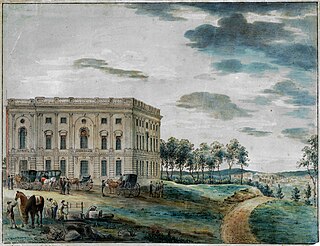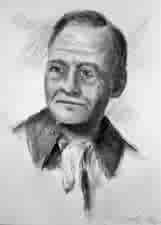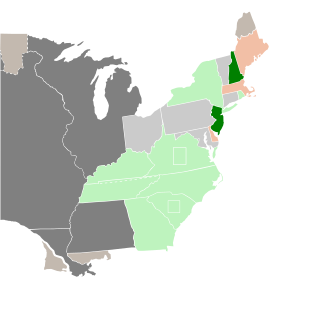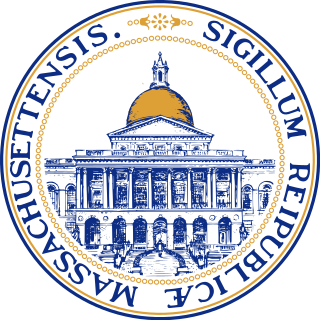
The Twelfth Amendment to the United States Constitution provides the procedure for electing the president and vice president. It replaced the procedure in Article II, Section 1, Clause 3, under which the Electoral College originally functioned. The amendment was proposed by Congress on December 9, 1803, and was ratified by the requisite three-fourths of state legislatures on June 15, 1804. The new rules took effect for the 1804 presidential election and have governed all subsequent presidential elections.

The 7th United States Congress was a meeting of the legislative branch of the United States federal government, consisting of the United States Senate and the United States House of Representatives. It met in Washington, D.C. from March 4, 1801, to March 4, 1803, during the first two years of Thomas Jefferson's presidency. The apportionment of seats in the House of Representatives was based on the 1790 United States census. Both chambers had a Democratic-Republican majority, except during the Special session of the Senate, when there was a Federalist majority in the Senate.

The 8th United States Congress was a meeting of the legislative branch of the United States federal government, consisting of the United States Senate and the United States House of Representatives. It met in Washington, D.C. from March 4, 1803, to March 4, 1805, during the last two years of Thomas Jefferson's first term in office. The apportionment of seats in the House of Representatives was based on the 1800 United States census. Both chambers had a Democratic-Republican majority.

Thomas Worthington was an American politician who served as the sixth governor of Ohio.

The 1802–03 United States House of Representatives elections were held on various dates in various states between April 26, 1802 and December 14, 1803. Each state set its own date for its elections to the House of Representatives, either before or after the first session of the 8th United States Congress convened on October 17, 1803. They occurred during President Thomas Jefferson's first term in office.
John Hunter was an American farmer from Newberry, South Carolina. He represented South Carolina in the U.S. House from 1793 until 1795 and in the United States Senate from 1796 to 1798.

Ephraim Bateman represented New Jersey in the United States Senate from 1826 to 1829 and in the United States House of Representatives from 1815 to 1823.
The 1802 United States Senate special election in New York was held on February 9, 1802, by the New York State Legislature to elect a U.S. Senator to represent the State of New York in the United States Senate.

The 1803 United States Senate election in New York was held on February 1, 1803, by the New York State Legislature to elect a U.S. Senator to represent the State of New York in the United States Senate.
The first 1804 United States Senate special election in New York was held on February 3, 1804, by the New York State Legislature to elect two United States Senators to represent the State of New York in the United States Senate.

The 1804–05 United States Senate elections were held on various dates in various states. As these U.S. Senate elections were prior to the ratification of the Seventeenth Amendment in 1913, senators were chosen by state legislatures. Senators were elected over a wide range of time throughout 1804 and 1805, and a seat may have been filled months late or remained vacant due to legislative deadlock. In these elections, terms were up for the senators in Class 2.

The 1802–03 United States Senate elections were held on various dates in various states. As these U.S. Senate elections were prior to the ratification of the Seventeenth Amendment in 1913, senators were chosen by state legislatures. Senators were elected over a wide range of time throughout 1802 and 1803, and a seat may have been filled months late or remained vacant due to legislative deadlock. In these elections, terms were up for the senators in Class 1.

The 1802 United States House of Representatives elections in New York were held from April 27 to 29, 1802, to elect 17 U.S. Representatives to represent the State of New York in the United States House of Representatives of the 8th United States Congress.

The 1804 United States House of Representatives elections in New York were held from April 24 to 26, 1804, to elect 17 U.S. Representatives to represent the State of New York in the United States House of Representatives of the 9th United States Congress. At the same time, a vacancy was filled in the 8th United States Congress.

The 1802 United States Senate election in Pennsylvania was held on December 14, 1802. Samuel Maclay was elected by the Pennsylvania General Assembly to the United States Senate.
A special election was held in South Carolina's 4th congressional district on April 12–13, 1802 to fill a vacancy resulting from the resignation of Thomas Sumter (DR) on December 15, 1801, upon being elected to the Senate.
The 23rd Massachusetts General Court, consisting of the Massachusetts Senate and the Massachusetts House of Representatives, met in 1802 and 1803 during the governorship of Caleb Strong. David Cobb served as president of the Senate and John Coffin Jones served as speaker of the House.

The 24th Massachusetts General Court, consisting of the Massachusetts Senate and the Massachusetts House of Representatives, met in 1803 and 1804 during the governorship of Caleb Strong. David Cobb served as president of the Senate and Harrison Gray Otis served as speaker of the House.

American politician John Quincy Adams served as President of the United States (1825–1829) and United States Secretary of State (1817–1825). Prior to being president, he had served as United States Senator from Massachusetts (1803–1808) and had diplomatic experience as United States Minister to United Kingdom (1815–1817), Russia (1809–1814), Prussia (1797–1801) and the Netherlands (1794–1797). After losing the 1828 presidential election, he served as a member of the U.S. House of Representatives from Massachusetts for 17 years. He is the only American president to be elected to the House of Representatives after leaving office.